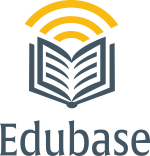Practice as a curriculum component: questions and reflections
DOI :
https://doi.org/10.7213/rde.v14i43.2080Résumé
This present reflection is motivated by difficulties imposed to graduation courses in order to interpret the meaning of Practice as a Curriculum Component (PCC), these difficulties expressed in different forms of implementation. The aim is to contribute to building a conception of PCC integrated to the political-pedagogical project of the course and contribute to the improvement of teacher’s formation, in order to overcome formal curriculum adjustments in which the PCC only serves as a mechanism to facilitate compliance with the minimum workload of the course. The starting point is the analysis of PCC models already existent in public universities, its advances and challenges. Then we discuss the ambiguities of the legal guidelines about the concept of practice present in formulations such as “Teaching Practice and Supervised Internship”, “Internship” and “PCC”. The place of PCC in the curriculum is also questioned: it’s about to rescue practice as a formation reference, to overcome the lack of distinction between PCC and Internship, and the dichotomies between disciplines of specific formation and teaching. Finally, based on theoretical assumptions that link theory and practice, integration projects are proposed by means of which the PCC can contribute to the organization of the course, the interdisciplinary, collective work, the expansion of formation beyond the classroom and to the formation of teachers better prepared to face the current challenges.Téléchargements
Références
BORGES, C. O professor de educação básica e seus saberes profissionais. Araraquara:
JM, 2008.
BRASIL. Ministério da Educação. Lei n. 9394, de 20 de dezembro de 1996. Brasília,
DF, 1996. Available at: <http://www.planalto.gov.br/ccivil_03/LEIS/l9394.htm>.
Accessed in: Oct. 23, 2006.
BRASIL. Ministério da Educação. Parecer CNE/CES n. 744, de 3 de dezembro de
Brasília, DF, 1997. Available at: <http://www.portal.mec.gov.br/index>.
Accessed in: Oct. 6, 2008.
BRASIL. Ministério da Educação. Parecer CNE/CP 9, de 8 de maio de 2001.
Documenta, Brasília, n. 476, p. 513-562, 2001a. Available at: <http://www.uems.
br/proe/sec/Parecer%20CNE-CP%20009-2001.pdf>. Accessed in: Oct. 23, 2006.
BRASIL. Ministério da Educação. Parecer CNE/CP n. 21, de 6 de agosto de 2001.
Brasília, DF, 2001b. Available at: <http://portal.mec.gov.br/cne/arquivos/
pdf/021.pdf>. Accessed in: Oct. 23, 2006.
BRASIL. Ministério da Educação. Parecer CNE/CP n. 28, de 2 de outubro de 2001.
Brasília, DF, 2001c. Available at: <http://www.uems.br/proe/sec/Parecer%20
CNE-CP%20028-2001.pdf>. Accessed in: Oct. 23, 2006.
BRASIL. Ministério da Educação. Resolução CNE/CP n. 1, de 18 de fevereiro de
Diário Oficial da União, Brasília, 4 mar. 2002a. Seção 1. p. 8.
BRASIL. Ministério da Educação. Resolução CNE/CP n. 2, de 19 de fevereiro de
Diário Oficial da União, Brasília, 4 mar. 2002b. Seção 1. p. 9.
BRASIL. Ministério da Educação. Parecer CNE/CES n. 15, de 2 de fevereiro de 2005.
Brasília: MEC/CNE, 2005.
CARVALHO et al. Simpósio de Licenciatura: “prática de ensino em questão”. In:
CARVALHO et al. Simpósio de Licenciatura: a prática de ensino em questão. São
Paulo: Unesp/Prograd, 1993.
CARVALHO et al. Pensando a formação de professores na Unesp. São Paulo: Unesp/
Prograd, 2002.
CARVALHO et al. II Simposio: a prática de ensino em questão – memória e síntese
das discussões. In: CARVALHO et al. II Simpósio de Licenciatura: a prática de
ensino em questão. São Paulo: Unesp/Prograd, 2009.
CHAGAS, V. O ensino de 1º e 2º graus: antes, agora e depois? 2. ed. São Paulo:
Saraiva, 1975.
HOLMES GROUP. Tomorrow's teacher: a report of the Holmes Group. East
Lansing, MI: The Holmes Group, 1986.
SÃO PAULO (Estado). Conselho Estadual de Educação. Relatório do Conselho
Pleno. 23 set. 1997. São Paulo: CEESP, 1997.
SARTI, F. M. O professor e as mil maneiras de fazer no cotidiano escolar. Educação:
Teoria e Prática, v. 18, n. 30, p. 47-65, 2008.
SCHON, D. The reflective practicioner. New York: Basic Books, 1983.
SCHON, D. Formar professores como profissionais reflexivos. In. NÓVOA, A.
(Org.). Os professores e sua formação. Lisboa: Dom Quixote, 1992. p.78-93.
SILVA, T. T. Documentos de identidade: uma introdução às teorias do currículo.
Belo Horizonte: Autêntica, 1999.
SOUZA NETO, S.; ALEGRE, A. de N.; COSTA, Á. C. A prática como componente
curricular e o estágio curricular supervisionado: que rumo tomar? In: SOUZA
NETO, S.; HUNGER, D. (Org.). Formação profissional em educação física: estudos e
pesquisas. Rio Claro: Biblioética, 2006. p. 33-42.
SOUZA NETO, S.; COSTA, A. C. Imagens e projetos na formação de professores:
pela superação das dicotomias nos currículos das licenciaturas. Educação: Teoria e
Prática, v. 11, n. 20, 21, p. 47-50, 2003.
TARDIF, M. Saberes docentes e formação profissional. Petrópolis: Vozes, 2002.
UNESP – Universidade Estadual Paulista Júlio de Mesquita Filho. Relatório síntese
de caracterização das licenciaturas. São Paulo, 2011. Available at:
fclar.unesp.br/licenciaturas/PDFs/sintese.pdf>. Accessed in: Apr. 30, 2013.
Téléchargements
Publiée
Comment citer
Numéro
Rubrique
Licence
O(s) autor(es) transfere(m), por meio de cessão, à EDITORA UNIVERSITÁRIA CHAMPAGNAT, pessoa jurídica de direito privado, inscrita no CNPJ/MF sob o n.º 76.659.820/0009-09, estabelecida na Rua Imaculada Conceição, n.º 1155, Prado Velho, CEP 80.215-901, na cidade de Curitiba/PR, os direitos abaixo especificados e se compromete a cumprir o que segue:
- Os autores afirmam que a obra/material é de sua autoria e assumem integral responsabilidade diante de terceiros, quer de natureza moral ou patrimonial, em razão de seu conteúdo, declarando, desde já, que a obra/material a ser entregue é original e não infringe quaisquer direitos de propriedade intelectual de terceiros.
- Os autores concordam em ceder de forma plena, total e definitiva os direitos patrimoniais da obra/material à EDITORA UNIVERSITÁRIA CHAMPAGNAT, a título gratuito e em caráter de exclusividade.
- A CESSIONÁRIA empregará a obra/material da forma como melhor lhe convier, de forma impressa e/ou on line, inclusive no site do periódico da EDITORA UNIVERSITÁRIA CHAMPAGNAT, podendo utilizar, fruir e dispor do mesmo, no todo ou em parte, para:
- Autorizar sua utilização por terceiros, como parte integrante de outras obras.
- Editar, gravar e imprimir, quantas vezes forem necessárias.
- Reproduzir em quantidades que julgar necessária, de forma tangível e intangível.
- Adaptar, modificar, condensar, resumir, reduzir, compilar, ampliar, alterar, mixar com outros conteúdos, incluir imagens, gráficos, objetos digitais, infográficos e hyperlinks, ilustrar, diagramar, fracionar, atualizar e realizar quaisquer outras transformações, sendo necessária a participação ou autorização expressa dos autores.
- Traduzir para qualquer idioma.
- Incluir em fonograma ou produção audiovisual.
- Distribuir.
- Distribuir mediante cabo, fibra ótica, satélite, ondas ou qualquer outro sistema que permite ao usuário realizar a seleção da obra ou produção para recebê-la em tempo e lugar previamente determinados por quem formula a demanda e nos casos em que o acesso às obras ou produções se faça por qualquer sistema que importe em pagamento pelo usuário.
- Incluir e armazenar em banco de dados, físico, digital ou virtual, inclusive nuvem.
- Comunicar direta e/ou indiretamente ao público.
- Incluir em base de dados, arquivar em formato impresso, armazenar em computador, inclusive em sistema de nuvem, microfilmar e as demais formas de arquivamento do gênero;
- Comercializar, divulgar, veicular, publicar etc.
- Quaisquer outras modalidades de utilização existentes ou que venham a ser inventadas.
- Os autores concordam em conceder a cessão dos direitos da primeira publicação (ineditismo) à revista, licenciada sob a CREATIVE COMMONS ATTRIBUTION LICENSE, que permite o compartilhamento do trabalho com reconhecimento da autoria.
- Os autores autorizam a reprodução e a citação de seu trabalho em repositórios institucionais, página pessoal, trabalhos científicos, dentre outros, desde que a fonte seja citada.
- A presente cessão é válida para todo o território nacional e para o exterior.
- Este termo entra em vigor na data de sua assinatura e é firmado pelas partes em caráter irrevogável e irretratável, obrigando definitivamente as partes e seus sucessores a qualquer título.
- O não aceite do artigo, pela EDITORA UNIVERSITÁRIA CHAMPAGNAT, tornará automaticamente sem efeito a presente declaração.












